Ginger's natural compounds effectively preserve your food through five powerful mechanisms. You'll find essential oils like zingiberene that inhibit microbial growth, while antioxidants such as gingerol and shogaol prevent food oxidation. The root's antimicrobial compounds, including phenolics and terpenes, disrupt harmful bacteria like E. coli and S. aureus. Ginger also controls enzyme activity that causes spoilage through temperature and pH regulation. When you store ginger properly in airtight containers with moisture control, it can extend food preservation for up to 2 years. There's much more to discover about ginger's remarkable preservation properties.
Essential Oils in Ginger Root

While many herbs and spices contain essential oils, ginger root's essential oil composition makes it particularly valuable for food preservation. When you extract oil from the rhizome of Zingiber officinale, you'll find a complex mixture of compounds that work together to protect food from spoilage. The extraction can be done through distillation of dried ginger or super-critical extraction of fresh ginger. The root's organic cultivation method ensures the purest and most potent preservative properties.
You'll discover that ginger's essential oil contains powerful sesquiterpenes, including zingiberene, b-sesquiphellandrene, and beta-bisabolene. These compounds, along with monoterpenes and aldehydes, don't just create ginger's distinctive aroma – they're essential for its preservative properties. Unlike CO2 extracts, you won't find bitter principles in the essential oil.
When you're looking to preserve food, you'll want to take advantage of ginger oil's versatility. You can use it in various forms, including nanoemulsions and encapsulated versions. The oil's chemical makeup helps inhibit microbial growth, while its warm, spicy aroma provides additional protection against pathogens.
Whether you're preserving bread, meat, fish, or fruit, ginger essential oil's natural compounds offer superior preservation compared to traditional methods.
Natural Antioxidant Properties
The natural antioxidant properties of ginger make it a powerhouse for food preservation. At its core, ginger contains powerful compounds like gingerol, shogaol, and zingerone that actively fight oxidation. These bioactive elements work by scavenging free radicals and preventing the breakdown of fats and oils in food. Red ginger varieties demonstrate the highest concentrations of essential oils and antioxidant compounds.
You'll find that ginger's preservation capabilities are particularly effective when used in concentrations between 600-1800 ppm. It's especially useful in preventing lipid oxidation, which helps maintain food quality during processing and storage.
What's more, you won't need synthetic preservatives like BHT or BHA when you're using ginger as a natural alternative.
Here are the key ways ginger's antioxidant properties protect your food:
- Eliminates harmful reactive oxygen species
- Prevents the oxidation of unsaturated fatty acids
- Reduces total oxidation values in oils
- Maintains food's organoleptic properties
- Extends overall shelf life
The effectiveness of ginger's antioxidant properties depends on concentration – higher amounts generally yield better results.
When you're preserving foods, especially those with high fat content, ginger's natural compounds work through multiple pathways to keep your food fresh and maintain its quality.
Antimicrobial Compounds
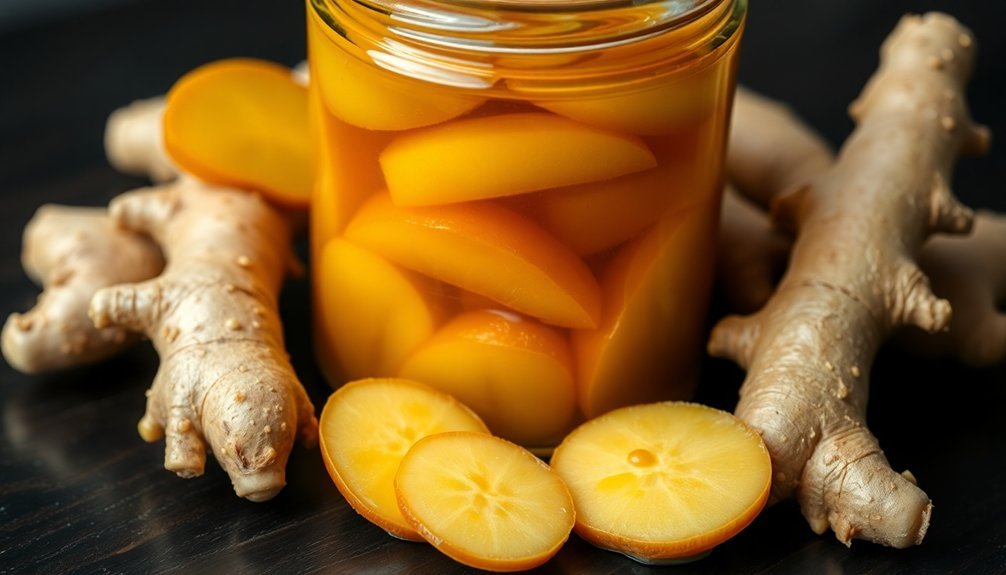
Beyond its antioxidant effects, ginger's impressive antimicrobial properties make it a dual-action preservative powerhouse. You'll find several bioactive compounds working together to fight harmful microorganisms in your food. Gingerols, shogaols, and zingerones lead the charge, while phenolic compounds and terpenes provide additional antimicrobial support.
When you use ginger in food preservation, it attacks harmful bacteria in multiple ways. It disrupts bacterial cell membranes, causing them to leak and die. It also interferes with bacterial gene expression and reduces their metabolic activity, making it harder for spoilage organisms to survive. These natural compounds are increasingly preferred as natural food preservatives replace synthetic options in modern food processing.
| Compound Type | Primary Action | Target Organisms |
|---|---|---|
| Gingerols | Cell membrane disruption | Gram-positive bacteria |
| Shogaols | Protein denaturation | Food pathogens |
| Terpenes | Metabolic interference | Biofilm-forming bacteria |
| Phenolics | Gene expression inhibition | Broad spectrum |
You'll find ginger particularly effective against common food pathogens like S. aureus and E. coli. It's especially powerful against gram-positive bacteria and can prevent biofilm formation, making it a reliable alternative to synthetic preservatives in your food processing and storage needs.
Enzymatic Food Protection
Food preservation faces four key enzymatic challenges that you'll need to address for effective storage. Enzymes naturally present in food tissues can trigger spoilage reactions, especially when mechanical damage releases them during handling.
You'll find these reactions lead to off-flavors, texture problems, and nutrient losses if left unchecked.
To combat these issues, you can leverage enzymatic protection methods that work effectively with ginger's natural properties. These approaches focus on controlling enzyme activity through specific storage conditions and preservation techniques.
When you're dealing with microbial growth, enzyme preparations can inhibit bacteria, yeasts, and molds that cause spoilage.
Key factors you'll need to monitor include:
- Temperature control to slow enzymatic reactions and microbial growth
- pH levels that affect enzyme stability and effectiveness
- Water activity maintenance below 0.91 to restrict bacterial growth
- Oxygen exposure reduction to limit oxidative enzyme reactions
- Storage conditions that prevent endospore germination
Moisture Control Benefits

Maintaining proper moisture control offers several critical benefits when preserving ginger, particularly in its dried form. You'll find that using airtight containers like glass jars or vacuum-sealed bags is essential to minimize air exposure and prevent unwanted moisture buildup. These containers can keep your dried ginger fresh for 6-12 months while preserving its aromatic qualities.
To enhance preservation, you can add silica gel packets or other desiccants to your storage containers. These moisture-absorbing agents help maintain a consistently dry environment, preventing your dried ginger from becoming soft or sticky.
When you're planning for long-term storage, vacuum sealing is your best option, as it can extend shelf life to 1-2 years by removing air that could lead to oxidation.
You'll want to store your dried ginger in a cool, dry place with temperatures between 50°F to 70°F. Avoid areas near ovens, windows, or other heat sources that can cause temperature fluctuations.
This careful attention to storage conditions protects the essential oils in your dried ginger, ensuring it maintains its texture and flavor for extended periods.
Frequently Asked Questions
Can Ginger Be Stored in Honey, and How Long Will It Last?
While you can store ginger in honey, it's not a recommended method. There's no reliable data on shelf life, and traditional methods like freezing or refrigeration are safer and more effective for preserving ginger.
Does Crushing Ginger Before Storage Affect Its Preservation Properties?
Yes, crushing ginger before storage can affect its preservation. You'll find it spoils faster when crushed due to increased air exposure. It's best to store ginger whole and crush it just before use.
What's the Best Container Material for Storing Preserved Ginger?
You'll want to use airtight glass containers or vacuum-sealed bags for preserved ginger. Glass won't react with the ginger, while vacuum-sealed bags remove air and prevent moisture, keeping your ginger fresh longer.
Can Preserved Ginger Change Color, and Is It Still Safe?
Yes, your preserved ginger can develop a blue-ish tint due to anthocyanin pigments reacting to cold storage and acidity changes. Don't worry – it's still perfectly safe to eat with just a milder flavor.
How Does Altitude Affect Ginger Preservation Methods?
At higher altitudes, you'll need to adjust your ginger preservation methods. You'll experience faster drying times, slower fermentation, and may need extra packaging to prevent moisture loss due to lower humidity and oxygen levels.
In Summary
Now you've learned the five powerful ways ginger helps preserve your food naturally. From its potent essential oils to its moisture-regulating abilities, you'll find this versatile root offers a complete preservation solution. Whether you're using it fresh, dried, or powdered, you can count on ginger's antioxidants, antimicrobial compounds, and enzyme-protecting properties to keep your food fresher longer while adding delicious flavor.
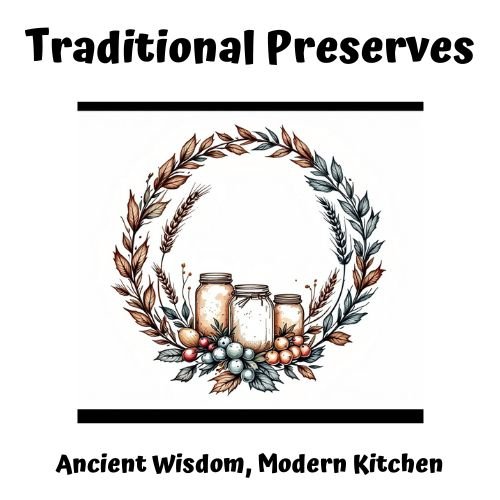

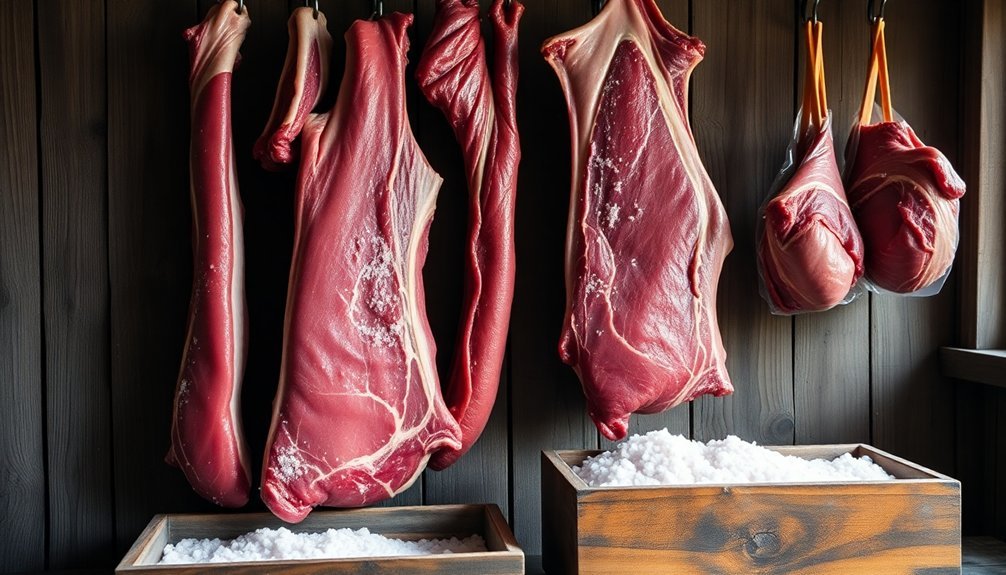
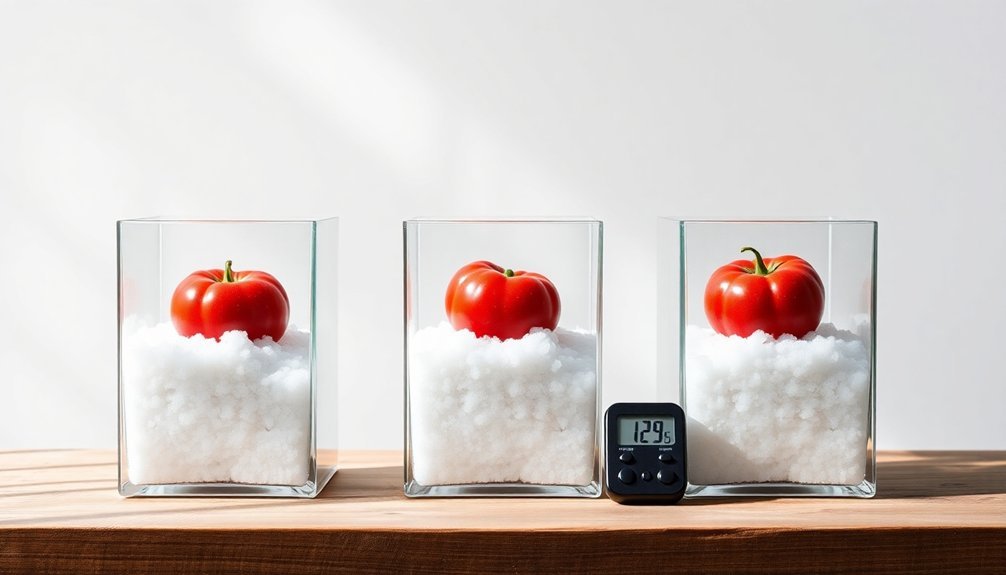
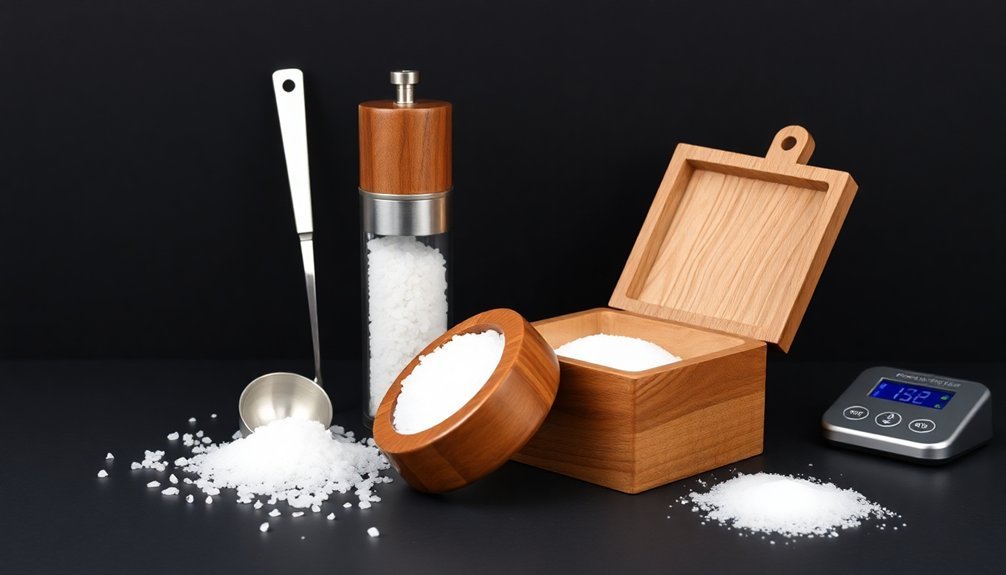
Leave a Reply